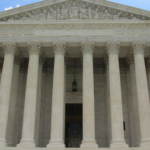The Court of Appeals for the Fifth Circuit has upheld a ruling in favor of a credit repair organization that was sued by a debt collector for allegedly perpetrating a fraud by failing to disclose it was sending letters to the collector in its clients names and on their behalves, ruling that the collector did not do enough to prove that the credit repair organization committed fraud.
A copy of the ruling in the case of The CBE Group and RGS Financial v. Lexington Law Firm, Progrexion et al can be accessed by clicking here.
CBE sued the defendants in 2017, claiming the credit repair organizations were committing fraud by sending dispute letters that purported to come from the organizations’ clients. The plaintiffs argued that the requirements to investigate disputes under the Fair Credit Reporting Act and the Fair Debt Collection Practices Act meant that the disputes they were receiving were costing them money to investigate, which they would not have had to spend if the disputes were never sent. A jury found for the plaintiffs on two of the three claims — fraud and fraud by non-disclosure — but found for the defendants on a conspiracy claim. The defendants filed a motion for judgment as a matter of law, which a District Court judge granted.
In its appeal, the plaintiffs tried to argue that the engagement agreement that consumers signed with the credit repair organizations, which allowed them to send dispute letters on the consumers’ behalves, were fraudulent because the organizations did not discuss the letters with the consumers first. But the Appeals Court ruled that any discussion was immaterial because the engagement agreements allowed the defendants to send letters on its clients’ behalves.
The plaintiffs also argued that the defendants sent multiple dispute letters for the same clients, the evidence put forth by the plaintiffs did “not suggest that Lexington Law committed fraud,” the Appeals Court wrote.
The fraud by non-disclosure claim must also be dismissed, the Appeals Court wrote, because the plaintiffs did not “justifiably rely on any failure of the Defendants to disclose material facts.” and that they did not show “that Defendants had a duty to disclose that they were the ones actually sending the dispute letters.”









